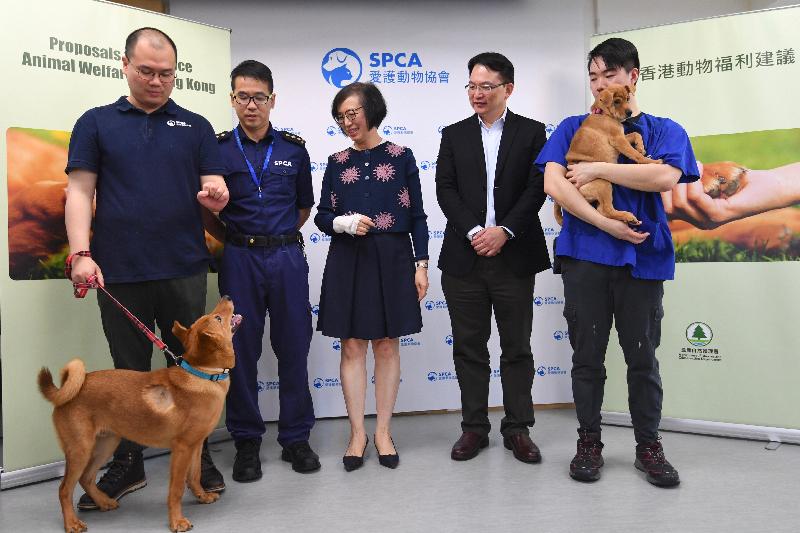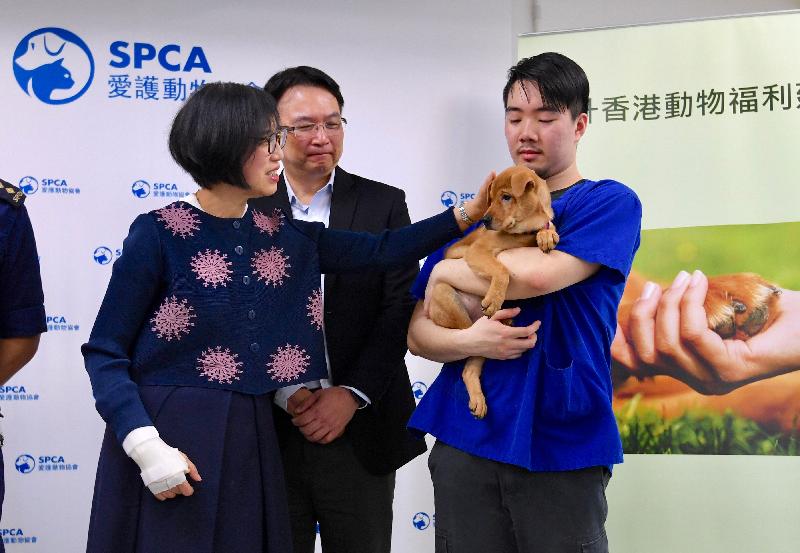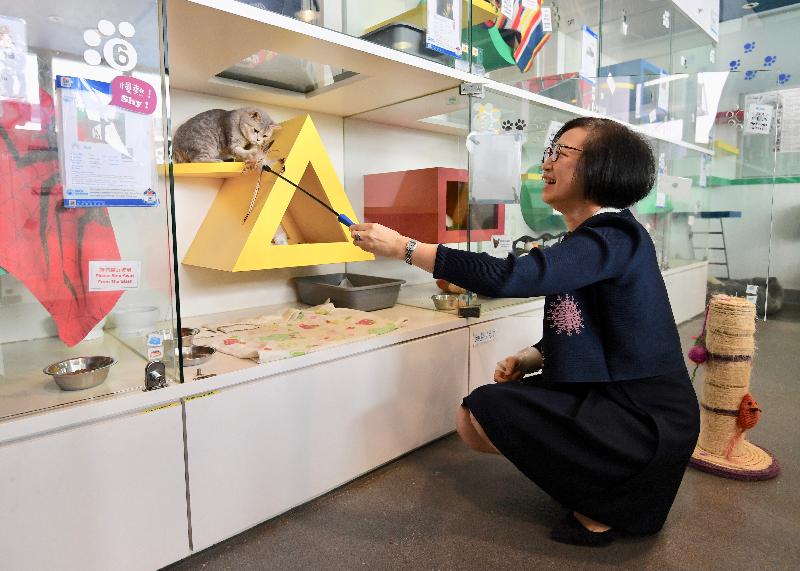Transcript of remarks by SFH at media session (with photos)
***********************************************************
Reporter: Are you worrying that it will be a little bit difficult to impose the new law….?
Secretary for Food and Health: I think the objective of amending the law or this public consultation is to strengthen our existing law in terms of increasing the awareness of animal welfare among the public. On one hand, we want to strengthen the duty of care. On the other hand, we will also review the existing penalty as well as strengthen education. Regarding the details of how to ensure or how to prove the owners of the animals would provide the duty of care, perhaps I can ask Dr Thomas Sit (Assistant Director of Agriculture, Fisheries and Conservation (Inspection & Quarantine)) to give more details.
Reporter: The duty of care is quite a new concept in the city and the public might be confused. For example, fish mongers in wet markets, are they responsible for killing live fishes constituting cruelty? Please explain how to avoid this kind of public confusion. The second question is that some people say that the duty of care only applies to animals who have responsible persons. Is it correct to say this law doesn't provide any protection to abandoned ones? My last question is that the law is expected to become effective in 2021 and some say that it is taking too long. What is the biggest hurdles in expediting the process?
Secretary for Food and Health: I would first talk about the principles of the duty of care. As Dr Sit has just said, other than the general concept of having the duty of care, we will couple with publicity and education when we issue the law, so that everybody understands what we mean by the duty of care. Secondly, as Dr Sit has already said, we would have a set of criteria in order to make the public understand what the requirements or expectations for the duty of care are. Thirdly, I think having an education campaign coupled with the issue of the law as well as enforcement are very important. I know a number of you actually have questions about enforcement. Of course, at this point of time, even before we start the public consultation, we are only working with the framework of the suggested amendments. After we have completed the public consultation, we would have a chance to analyse all the comments that we have received from the public and finalise the details of the amendment framework. But we still have to go through the Legislative Council, to go through the Bills Committee and get comments from legislators as well as the public. At that point of time, more details will come out. As Dr Sit has just said, there will be a Code of Practice, or a set of guidelines that provides more details, in addition to the law. After we know the details of the amendments we are going to make, I am sure the Agriculture, Fisheries and Conservation Department will look into whether manpower is enough to carry out enforcement. We will deal with that at a later stage. Regarding the timetable, this consultation would take three months and we need time to look into the comments that we receive during the consultation. It really depends on how many comments we have received and then we can analyse them. After analysing the comments, we will finalise the framework and have to work with the Department of Justice to draft the law. So it would take a bit of time in terms of the process. We don't envisage any big hurdles. I think it is just like any other laws that we are going to amend. It takes time.
Reporter: Some cases of amendments do not take so long.
Secretary for Food and Health: It depends on the complexity of the law, the comments that we receive from the public during the consultation and whether there are any conflicting comments, etc. So, we really cannot predict in a fine manner at this stage.
Reporter: The heaviest sentence handed down by the court for imprisonment so far is 16 months. That is during a period of 13 years, from 2006 to 2019. How can we ensure that the increase in penalty would be effective, given that the heaviest penalty handed down so far is only 16 months? Can you tell us how many people have gone to jail so far?
Secretary for Food and Health: Perhaps Dr Sit can supplement the numbers. The objectives of this public consultation and also the amendments to the law are to try our best, not only to enhance animal welfare in Hong Kong, but also to see whether there are any loopholes or whether there are any gaps in the existing law we need to fill. So, those are also the things that we will look into.
Reporter: Does it mean that you are quite happy with the "18 months" proposal put forward by the Hong Kong Medical Association ?
Secretary for Food and Health: I think we need to look into the details first. As I have said although the "18 months" proposal seems to be equal for all employers and organisations listed for limited registration, namely the Hospital Authority, the Department of Health, the University of Hong Kong and the Chinese University of Hong Kong, the devil is in the details. I think we need to look into the details as to how to define the wording prescribing for the experience because that may pose an obstacle as well. I think it is important to know more details about the proposal first.
(Please also refer to the Chinese portion of the transcript.)
Ends/Friday, April 26, 2019
Issued at HKT 16:16
Issued at HKT 16:16
NNNN







